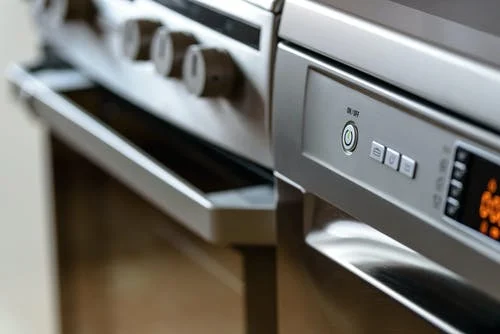Dishwashers, kettles, fridges, toasters. They are appliances which make everyday living easier. So, what happens when one breaks? The most obvious option is to go into a store to purchase a new one or get one delivered to your door.
But what do you buy? The more cost-effective option, or invest in a more expensive alternative?
Cheap and affordable appliances and whiteware are on the rise, with an increasing number of retailers selling electrical products for the home. Often the more inexpensive options are more attractive, especially when budget conscious. However, it is also important to consider the efficiency, environmental impact and longevity of the appliances purchased and whether these will better serve the home in the long run.
Efficiency:
When sold new, fridges, freezers, televisions, washing machines and dryers, and heat pumps must show an energy-efficient label. This indicates how energy efficient the appliance using a “star” rating and how much power the appliance uses in a year. However, not all electrical outlets require an energy efficiency label. This includes water heating, lighting, and computers, so doing some research to find the most energy-efficient option really does make a difference!
As a rule of thumb, the higher the star rating, the better. This makes a difference in the efficiency of an appliance and can also save money in power bills – who wouldn’t want that!
Read more about Energy Star Rating here
Environmental Impact:
Cost is a significant factor in purchasing electrical appliances; however, a crucial part to consider is the ecological impact on the environment. Energy consumption and water consumption differ between brand and appliance, so the star rating can often show the energy efficiency and the conservation authority.
As consumers, researching and seeking out sustainable options that limit their carbon footprint is important. This includes the energy it draws and the disposal at the end of its lifecycle. Whether it’s fully or partially recyclable, it pays to do some research into different brands and recycling centres.
Longevity:
Buying from new is often associated with higher quality and longevity, with the assumption that there is a greater investment in manufacturing the product. So, when purchasing electrical appliances from new, a consumer assumes it will last a long time. It makes sense, right?
But when the worst-case scenario occurs and the appliances stop working, rather than looking to purchase new again, the questions to think about are does it have a warranty? Can it be fixed? Can parts be replaced?
Disposing of appliances doesn’t mean they have to go straight to the landfill. Online marketplaces such as Trade Me or Facebook Marketplace are great platforms to buy, sell and trade electrical appliances – many people are looking for second-hand options or parts to upgrade and fix the appliances they have at home.
By buying more expensive machines and appliances, one can hope for longevity and more effective running costs. However, it always pays to do research, and consumer reviews are always helpful to aid the decision making.
When you need an electrical solution that’s eco-friendly too, talk to us. Specialising in eco-friendly options, our team is wired differently and can advise on what systems and products will best suit your home while positively impacting our environment.




